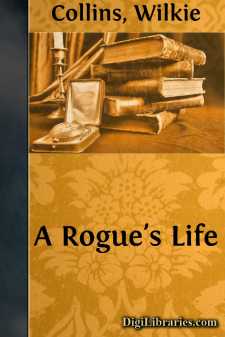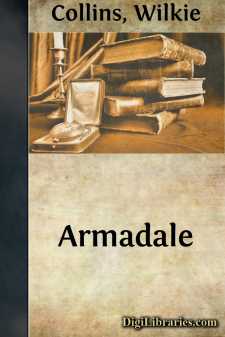Categories
- Antiques & Collectibles 13
- Architecture 36
- Art 48
- Bibles 22
- Biography & Autobiography 813
- Body, Mind & Spirit 142
- Business & Economics 28
- Children's Books 15
- Children's Fiction 12
- Computers 4
- Cooking 94
- Crafts & Hobbies 4
- Drama 346
- Education 46
- Family & Relationships 57
- Fiction 11828
- Games 19
- Gardening 17
- Health & Fitness 34
- History 1377
- House & Home 1
- Humor 147
- Juvenile Fiction 1873
- Juvenile Nonfiction 202
- Language Arts & Disciplines 88
- Law 16
- Literary Collections 686
- Literary Criticism 179
- Mathematics 13
- Medical 41
- Music 40
- Nature 179
- Non-Classifiable 1768
- Performing Arts 7
- Periodicals 1453
- Philosophy 64
- Photography 2
- Poetry 896
- Political Science 203
- Psychology 42
- Reference 154
- Religion 513
- Science 126
- Self-Help 84
- Social Science 81
- Sports & Recreation 34
- Study Aids 3
- Technology & Engineering 59
- Transportation 23
- Travel 463
- True Crime 29
No Thoroughfare
by: Wilkie Collins
Categories:
Description:
Excerpt
THE OVERTURE.
Day of the month and year, November the thirtieth, one thousand eight hundred and thirty-five. London Time by the great clock of Saint Paul’s, ten at night. All the lesser London churches strain their metallic throats. Some, flippantly begin before the heavy bell of the great cathedral; some, tardily begin three, four, half a dozen, strokes behind it; all are in sufficiently near accord, to leave a resonance in the air, as if the winged father who devours his children, had made a sounding sweep with his gigantic scythe in flying over the city.
What is this clock lower than most of the rest, and nearer to the ear, that lags so far behind to-night as to strike into the vibration alone? This is the clock of the Hospital for Foundling Children. Time was, when the Foundlings were received without question in a cradle at the gate. Time is, when inquiries are made respecting them, and they are taken as by favour from the mothers who relinquish all natural knowledge of them and claim to them for evermore.
The moon is at the full, and the night is fair with light clouds. The day has been otherwise than fair, for slush and mud, thickened with the droppings of heavy fog, lie black in the streets. The veiled lady who flutters up and down near the postern-gate of the Hospital for Foundling Children has need to be well shod to-night.
She flutters to and fro, avoiding the stand of hackney-coaches, and often pausing in the shadow of the western end of the great quadrangle wall, with her face turned towards the gate. As above her there is the purity of the moonlit sky, and below her there are the defilements of the pavement, so may she, haply, be divided in her mind between two vistas of reflection or experience. As her footprints crossing and recrossing one another have made a labyrinth in the mire, so may her track in life have involved itself in an intricate and unravellable tangle.
The postern-gate of the Hospital for Foundling Children opens, and a young woman comes out. The lady stands aside, observes closely, sees that the gate is quietly closed again from within, and follows the young woman.
Two or three streets have been traversed in silence before she, following close behind the object of her attention, stretches out her hand and touches her. Then the young woman stops and looks round, startled.
“You touched me last night, and, when I turned my head, you would not speak. Why do you follow me like a silent ghost?”
“It was not,” returned the lady, in a low voice, “that I would not speak, but that I could not when I tried.”
“What do you want of me? I have never done you any harm?”
“Never.”
“Do I know you?”
“No.”
“Then what can you want of me?”
“Here are two guineas in this paper. Take my poor little present, and I will tell you.”
Into the young woman’s face, which is honest and comely, comes a flush as she replies: “There is neither grown person nor child in all the large establishment that I belong to, who hasn’t a good word for Sally. I am Sally. Could I be so well thought of, if I was to be bought?”
“I do not mean to buy you; I mean only to reward you very slightly.”
Sally firmly, but not ungently, closes and puts back the offering hand. “If there is anything I can do for you, ma’am, that I will not do for its own sake, you are much mistaken in me if you think that I will do it for money. What is it you want?”
“You are one of the nurses or attendants at the Hospital; I saw you leave to-night and last night.”
“Yes, I am. I am Sally.”
“There is a pleasant patience in your face which makes me believe that very young children would take readily to you.”
“God bless ‘em! So they do.”
The lady lifts her veil, and shows a face no older than the nurse’s. A face far more refined and capable than hers, but wild and worn with sorrow....












